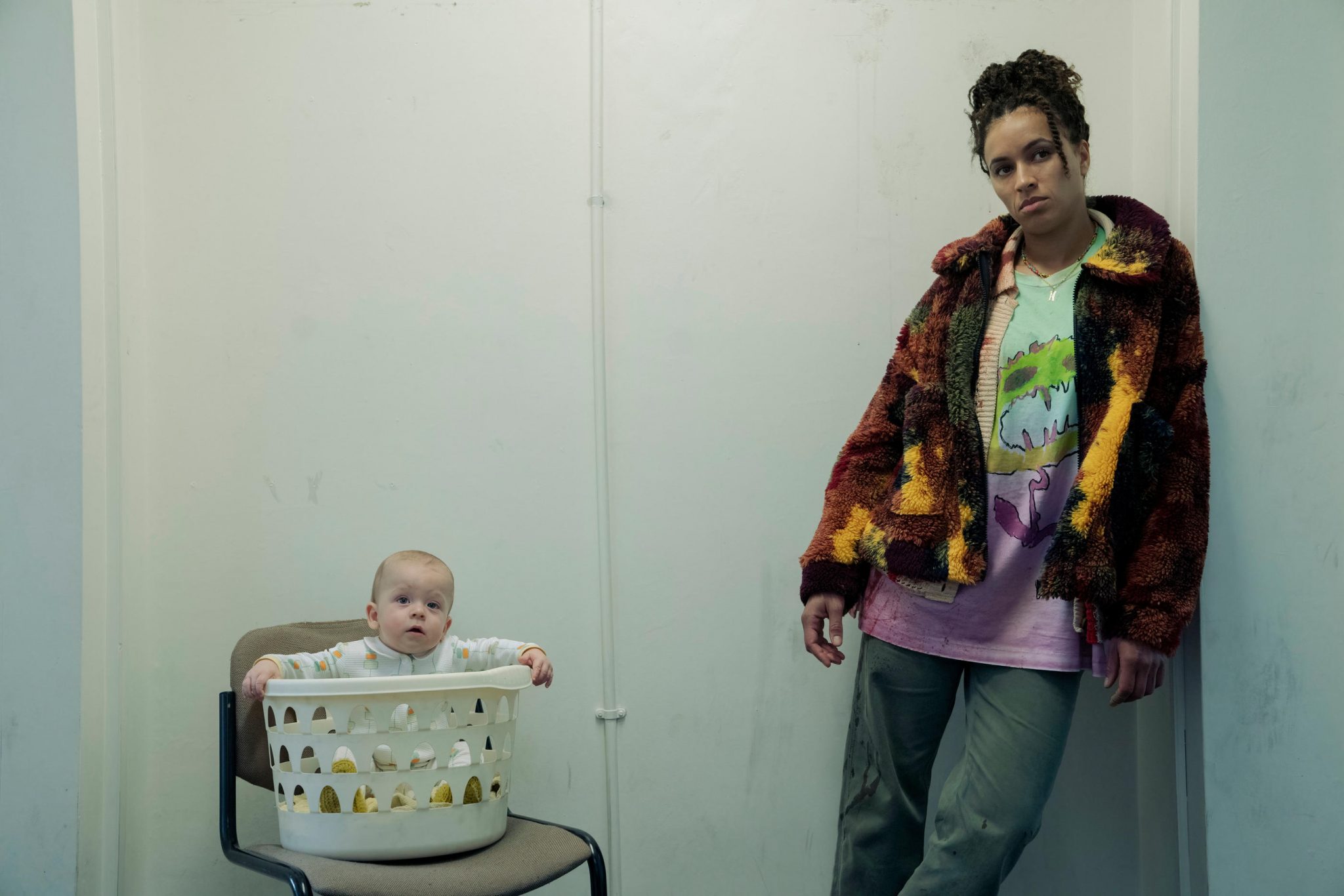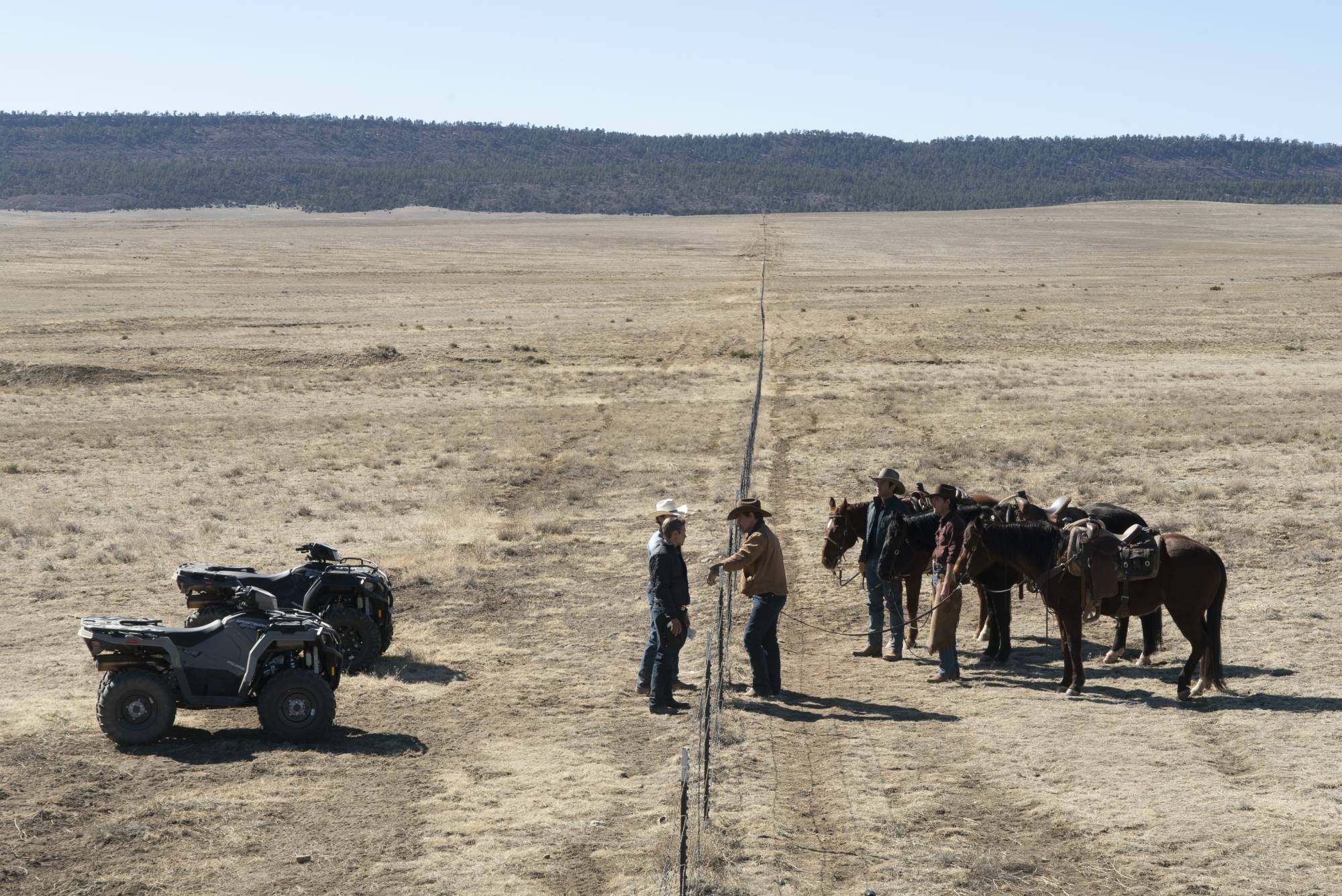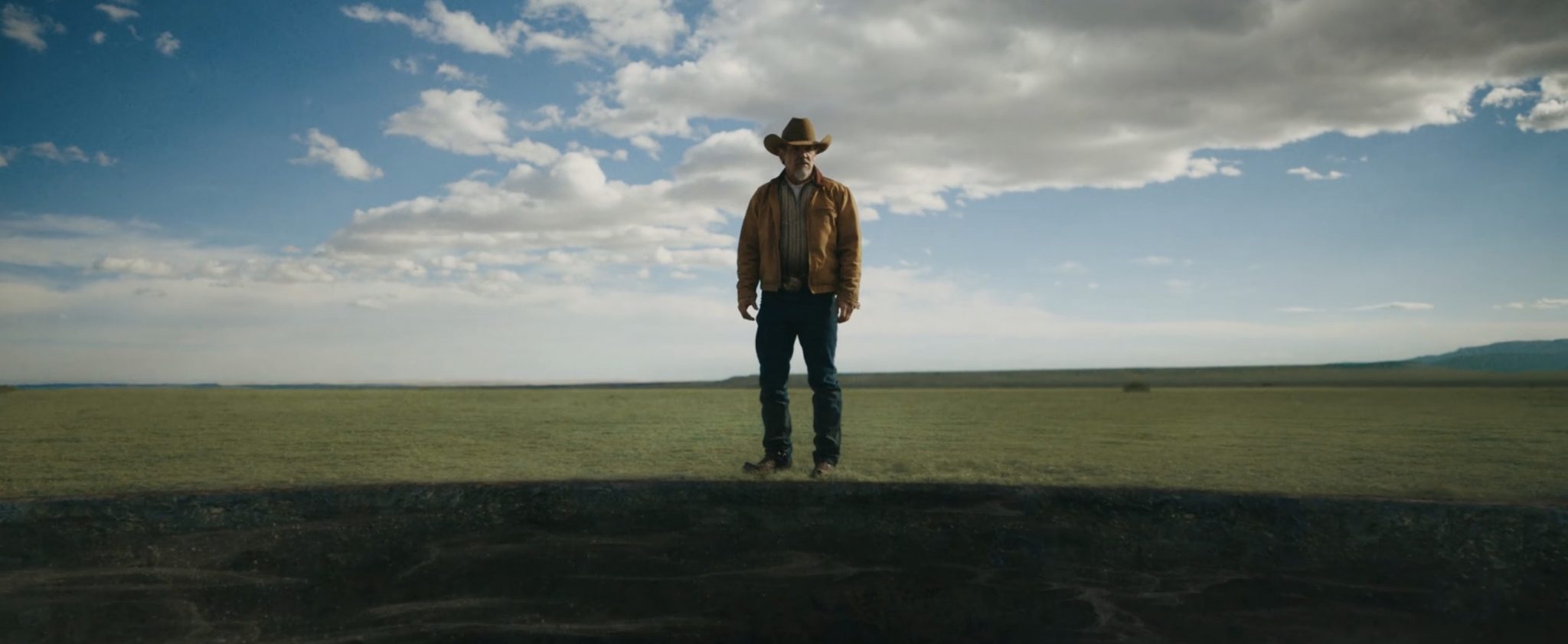Watercooler Wednesdays: The Baby & Outer Range
Watercooler Shows, the trending series that everyone talks about the next day at the office, around the water cooler. Watercooler Wednesdays seeks to be a (critical) guide through the VoD maze: from masterpiece series to guilty pleasures, and from blockbusters that keep you on the edge of your couch to hidden gems; if it leads to binging, then it’s exactly what we’re looking for.
This month’s recommendations are, in a way, a work in progress. The Baby has just been released on April 24 on HBO MAX and I had access to only 6 episodes (the last two are still in post-production). Outer Range, on the other hand, has recently come out on Amazon Prime, which releases two episodes per week. It seems that the classic distribution model – serialization, postponement of gratification – won’t disappear too soon under the assault of Netflix patented binging (an entire season released at the same time). From this point of view, writing a review on a series “in progress” is, without doubt, a gamble; all the more risky when it comes to series with a high dose of supernatural / SF (it’s relatively easy to come with plots that have the element of “wow”, it’s much harder to satisfactorily end a story like that). Either way, it’s a bet I wouldn’t mind losing (and there’s a chance this may happen, especially with Outer Range) – what I’ve seen so far deserves the attention of small-screen movie buffs.
Both productions are starring newcomers as showrunners, explore premises outside reality and are strongly anchored in the genre film (Outer Range even in several genres at once). But there are two different ways to make cinema, to pack (serialize) it, and which require very different things from the viewer. This opposition is partly determined by the primary genre approached – horror for The Baby, western for Outer Range – which dictates their rhythm (alert vs. contemplative), but is consistently supported by creative vision and stylistic choices that turn them into something more than genre films.

The Baby (Siân Robins-Grace, Lucy Gaymer, 2022)
You gotta see the baby! It’s one of those lines that went down in television history. In this case, I would say that the imperative is justified. The Baby is a breath of fresh air in this landscape of series which becomes more and more monotonous as it expands. Thematic creativity doesn’t keep up with production, and in streaming wars, the battles are mostly waged between clones and algorithms. A horror comedy about motherhood sounds like a combination pulled out of the hat by some AI in search of new topics, but what’s more important is what happens next with this idea.
Natasha (Michelle de Swarte) is 38 years old, has her own restaurant and doesn’t want children. Natasha is annoyed even by her best friends’ children … it’s not so much the children who are the problem but rather the mothers/pregnant women whose priorities and interests are different from the traditional poker night with the girls. They bring their children with them to your get-togethers, forbid you to swear and smoke in front of them, and get upset when you’re joking (are you?) about the fact that it’s not too late to have an abortion.

What do you do when a baby literally falls out into your arms? The first thing Natasha discovers is that it’s very hard to get rid of him. The social structure – and gradually the internal, biological one – closes every exit out. In the most unlikely situation where you manage to catch a baby in your arms – a few seconds after his mother fell/threw herself from the same cliff tens of meters high and crashed on the ground – you will have to take care of him.
The scene that follows this encounter – no spoilers here, everything is clear from the trailer – conveys a coherent vision on motherhood, which combines satire and dark humor with social commentary. On the trail of the two fallen out of the sky, two men in uniform appear at Natasha’s hut under the cliff. The protagonist – in shock, with the late mother’s dry blood on her clothes and face, and with an unknown child whimpering in her arms – is now seeking help from the police. The youngest chugs a large glass of water, his free hand clenched on the revolver so as to calm down his trembling: “It’s all that adrenaline”. His older partner pops out of the bathroom apologizing for the smell: “Sorry, it’s all that adrenaline”. They both stand with their hands on their hips, propped up in the uniform that gives them purpose, looking awkwardly around, waiting for a sign that they can dash out. “So what happens now … you don’t know, do you?!”.
Obviously, it’s another iteration of the incompetent cops cliché, but the subtext is more interesting: they don’t know what happens next because they’re men, they come in handy for conception, but you can’t rely on them for more. Their “adrenaline” is not about the terrible accident/suicide they witnessed, but about the fear of being responsible for a small child. Along the way, however, the vision turns out to be rather feminine than feminist, as the series satirically or empathetically explores new aspects of social pressure, peer pressure (those annoying mothers who feel the urge to give unsolicited advice to other mothers), and self-induced pressure (not to fail as a mother). Men are marginal, the latter two are wiped out by a boulder that falls out of nowhere and crushes them in the police car … in the back seat, the baby is babbling absently amongst shards and blood spatter.

Every time Natasha tries to pass him on to someone else, that someone suffers an absurd, inexplicable and very violent death. Before long, the coincidences gather beyond the endurance limit of reality, and both viewers and Natasha have to come to the conclusion that there is something evil about this little boy and that he is somehow responsible for the unfortunate events surrounding him. The finesse (and humor) of the social commentary and its mirroring in the horror genre would have been enough to make it a memorable series, but The Baby ups the ante through ambiguity. The baby is creepy, but also incredibly adorable; his seemingly paranormal abilities to control others are backed by emotional manipulation and the genetically coded responses of the adults who can’t resist them. Looking for new ways to get rid of him, Natasha inevitably becomes maternal… in her own way, trying to put him to sleep with some lyrics by Amy Winehouse, the only ones that come to mind, “When you walk in the bar, and you’re dressed like a star/ Rockin’ your fuck-me pumps …”.

Michelle de Swarte – a newcomer in film, a stand-up comedian and a former model – is perfectly cast as Natasha, but the star of the series is little Arthur Hills. Obviously, it doesn’t have to do with acting since Arthur isn’t even speaking yet and doesn’t understand the director’s instructions, but he’s definitely charismatic (You gotta see the baby!). After all, casting and editing can play a major role in making a movie star, and The Baby is a perfect example that even in the CGI era, the Kuleshov effect remains the basis of cinema. Whether he laughs, frowns, or cries, the meanings and emotions are read/felt depending on the preceding and following shots. It’s truly remarkable (and imperceptible) how The Baby manages to pivot an entire horror story around an actor who doesn’t really understand what’s going on.
The Baby is available on HBO Max.

Outer Range (Brian Watkins, 2022)
Outer Range claims so many genres, formulas and film conventions that it’s hard to say which one comes first. On its wiki page, the series is described as a “science fiction neo-Western mystery thriller”, and on Amazon Prime, is listed as a suspense and drama film. There is also a romantic subplot and moments of authentic comedy – explored through well-known musical practices or in the form of some highly polished and maniacally delivered monologues about all sorts of niches of human knowledge. After this kind of presentation, there is usually a commentary on how all these pieces come together into a whole … the fact that in this case it’s the very opposite might actually be what saves Outer Range from drowning.
Considering the series’ cinematography, lyricism and the topics it tackles – isolation, new property lines, personal justice, code of honor – Outer Range is a western, but the narrative framework rather comes from soap opera. Abbott and Tillerson are two dynasties of ranch owners fighting for land and resources for a hundred years, pretty much since their ancestors drove the Native Americans out of Wyoming and stole their lands. Apart from being a Native American, the acting sheriff of the county is also a woman, and the grassland once populated by buffalo is now exploited by the two clans. On one side of the barbed wire fence, the heirs of the dying Wayne Tillerson (Will Patton) run wild on their ATVs; on the other side, Royal Abbott (Josh Brolin) and his boys scowl at them from their horse saddles.

Family and land are Royal’s top priorities – and in his opinion, there can’t be one without the other, otherwise, it makes no sense – and both are threatened by the Tillersons’ hidden agenda. Obviously, it wouldn’t be a soap opera if there were no family secrets involved: a runaway daughter-in-law, a strange hippie who camps out on their land, an accidental murder that unites and defiles the whole family. The foul play going on behind the scenes and the cowboy hats remind of Dallas, but the aesthetic sensibility and the array of supporting characters rather feel like a deliberate reference to Twin Peaks (in turn a homage-pastiche of this American television entity that is soap opera).

And, of course, there is that inexplicable, perfect circle bottomless hole, which appears overnight on the western meadow and towards which all the characters seem to gravitate. It’s good for getting rid of bodies and incriminating evidence, but the things and people it swallows eventually find their way back … in an altered form. It’s a secret that the protagonist strives to keep to himself and about which he seems to know a lot more than he tells (us). And Royal doesn’t say much anyway, Josh Brolin is a master at projecting grumpy, growling masculinity with unsuspected resources for violent outbursts. And when he does say something, Brolin serves just as well as a prophet of the apocalypse, delivering indecipherable but poetic monologues about the meanings of this abyss that has appeared on his land, or arguing during the evening prayer with a God he no longer believes in.
This confusion maintained by the script, where the viewer knows much less than the character, works in favor of the series for the time being. Halfway through the season, I still don’t know who the good and the bad guys are – an emblem of neo-western, which shatters the moral pretense of the classic western and leaves the door wide open for all kinds of ambiguities and ambivalences. Obviously, all these characters – each with their own limited knowledge and all with obscure intentions – will have to come together at some point in a coherent explanation. I just hope that happens later in the season. First, because in the absence of this ambition to bring everything under the same roof, the different centers of gravity do not cannibalize each other, key moments are left up in the air and you can appreciate them as such. Second, the attempt to level and order them into a whole – which is bound to happen eventually – will most likely be less rewarding than the sum of the parts.
Outer Range is available on Amazon Prime Video.
Film critic and journalist, UNATC graduate. Andrei Sendrea wrote for LiterNet, Gândul, FILM and Film Menu, and worked as an editor on the "Ca-n Filme" TV Show. In his free time, he works on his collection of movie stills, which he organizes into idiosyncratic categories. At Films in Frame, he writes the Watercooler Wednesdays column - the monthly top of TV shows/series.
